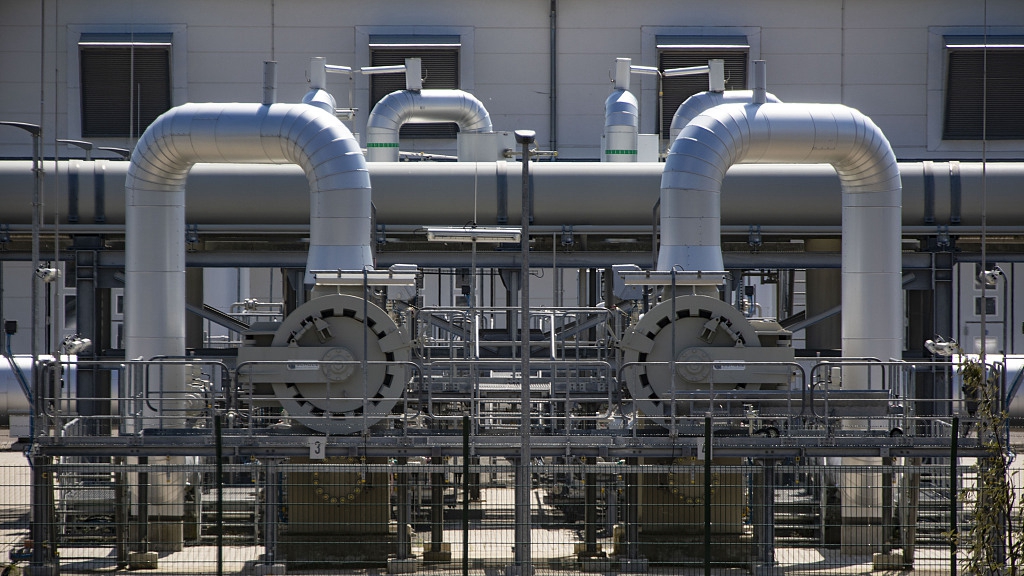
An exterior view of the natural gas landing station of the Nord Stream 2 Baltic Sea Pipeline, Lubmin, Germany, August 04, 2022. /CFP
An exterior view of the natural gas landing station of the Nord Stream 2 Baltic Sea Pipeline, Lubmin, Germany, August 04, 2022. /CFP
German households face an energy surcharge reaching hundreds of euros in the wake of the Russia-Ukraine conflict, according to the rate published Monday, prompting the government to promise relief measures.
The charge has been set at 2.419 cents per kilowatt hour, Trading Hub Europe, a non-profit company of energy network operators in Germany, said.
For a family of four with an annual average energy usage of 20,000 kilowatt hour (kwh), this would come to about 483.80 euros ($493.70) before goods and services taxes.
The surcharge is aimed at sharing out the soaring costs borne by energy importers amid reduced gas supply from Russia.
Gas importers have so far taken on the additional costs themselves, but a new rule agreed by the government allows them to pass on ballooning costs via the levy to households from October 1.
"It is by no means an easy step to take, but it is necessary to maintain the heating and energy supply in households and the economy," said German Economy Minister Robert Habeck.
He promised that the "levy will be accompanied by another relief package," details of which are still being discussed.
The state has had to inject billions of euros in energy giant Uniper to prevent it from going under after it was hit by Russia's energy cuts.
Major energy group RWE has however said that as a "financially strong and robust company", it will waive the surcharge and continue to bear the additional import costs itself.
The group last week reported profits reaching 1.57 billion euros for the first half of the year.
(Source: AFP with edits)
Read more: Behind the energy crisis: Is Europe too dependent on America?

